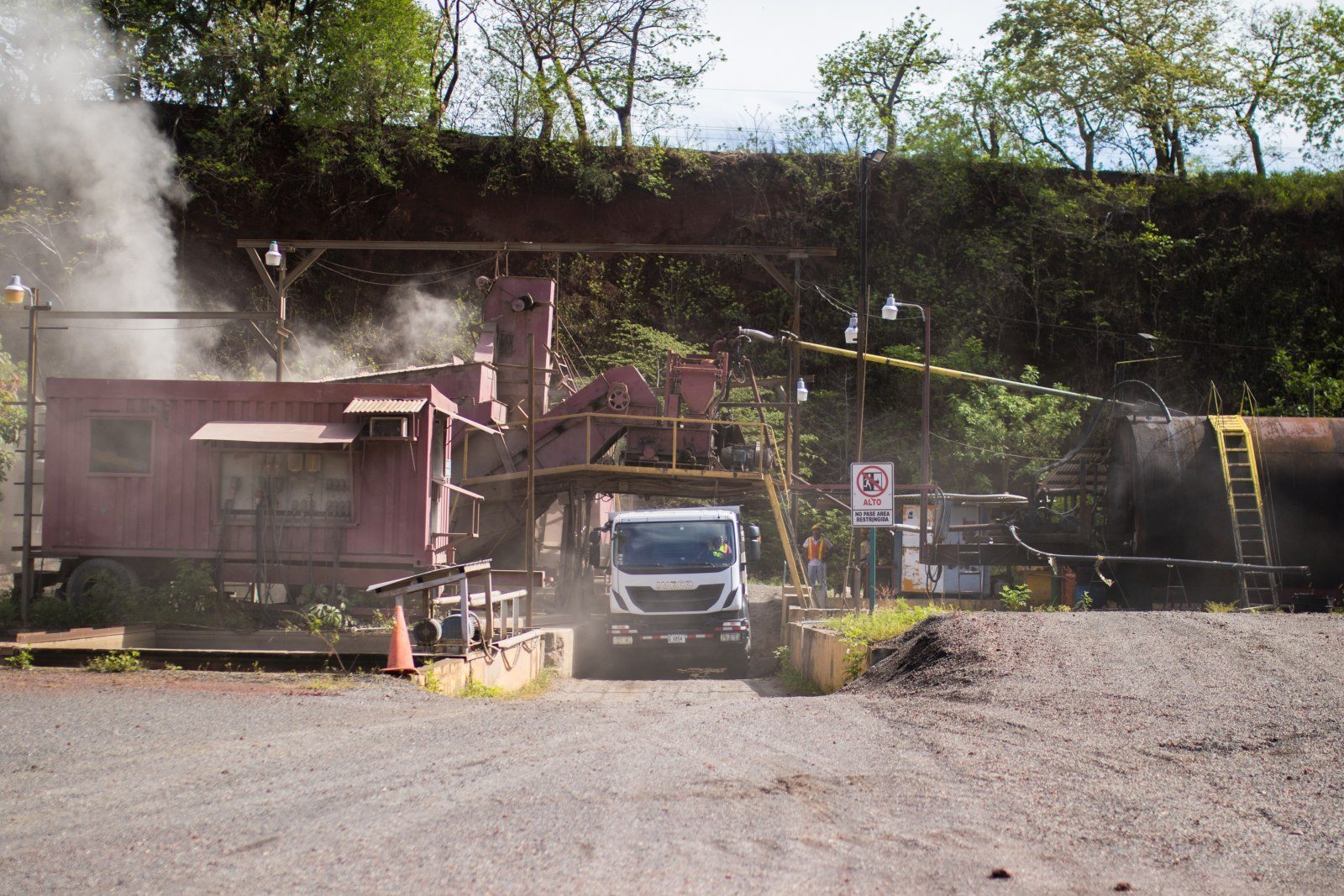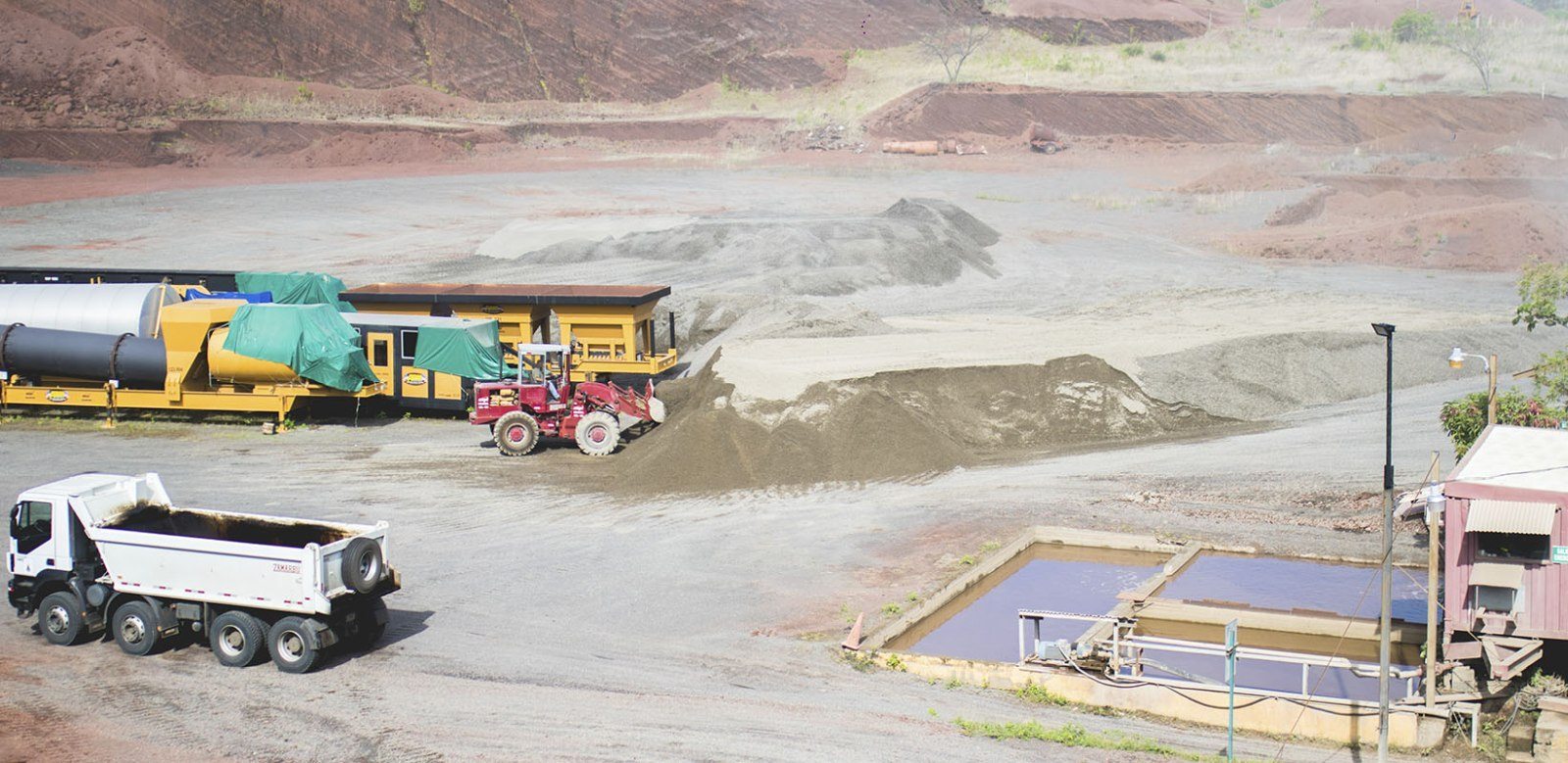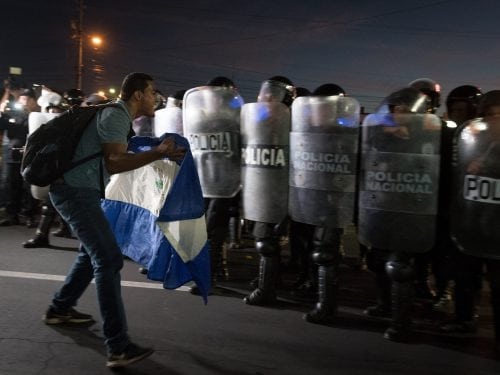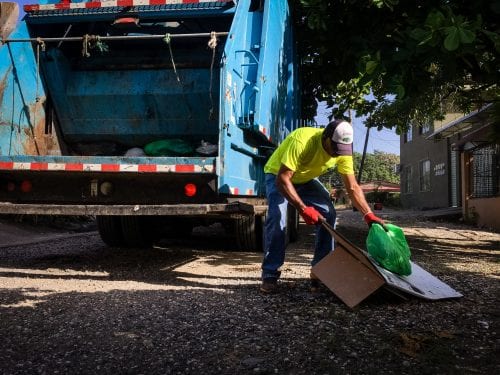
The Ministry of Public Works and Transportation (in Spanish, MOPT) paid ¢760 million ($1.3 million) in 2014 for a new asphalt plant that has not yet started operations because it lacks the necessary environmental permits from the National Environmental Technical Secretary (in Spanish, SETENA).
Although the plant was given the green light this year, it will benefit Guanacaste’s municipalities less than expected after a new law came into effect that transfers resources and capacities to the municipalities and that also impedes asphalt plants from prioritizing cantonal streets.
The unused machinery sits in the El Chopo quarry in Cañas, which The Voice of Guanacaste verified during a trip there this past May. By having the machinery idle, the MOPT is missing an opportunity to produce 67% more asphalt every month in comparison with their current plant.
The plant that is currently operating can produce a maximum of 300 tons of asphalt daily (20 tons in 20 minutes). On the other hand, with the new equipment, the MOPT could produce up to 500 tons daily (20 tons in seven minutes).
These types of plants supply asphalt for works performed by the MOPT, CONAVI, and municipalities on roads throughout the country.

The plant currently in operation produces much less than the new one.
Read Also: MOPT Minister Explains (Again) that Delays in Guanacaste Road Work Due to Appeals
What’s Taking So Long?
Alice Sancho, head of the MOPT’s National Buildings department, explained that the asphalt plant currently in use already had its environmental impact permits in order. The initial goal was to substitute this one with a more modern one and locate it on the same site.
However, according to Sancho, SETENA ruled that the new plant must be located in another area within the quarry, which meant that the permit process with SETENA had to start from scratch.
“After the Secretary did its research, it considered that the project should be focused as a new project in another part of the property. As such, the necessary studies were begun to obtain permission for the new plant,” explained Sancho. These studies have already taken more than two years.
According to Carlos Soto, the regional director of MOPT, SETENA approved the permits to allow the new plant to begin working at the beginning of 2017. The wait now is to hire the company in charge of building the base where the plant will be located.
Sanchez added that the MOPT has a budget “up to” another ¢750 million ($1.3 million) to build the obras where the new plant will be. This work will begin in the second half of this year.
What Will Remain for the Municipalities?
Even though the plant will begin working this year, the benefit to Guanacaste’s municipalities will not be as large nor as high a priority as it was before.
With a new law coming into effect that transfers resources and capacities to improve highways to the municipalities (Law No. 9329), the asphalt plants will not give priority to cantonal streets but rather to those that the MOPT and CONAVI have to build, according to Guillermo Badilla, lawyer and deputy director of municipal works for the MOPT.
“The Ministry’s decision states that this material [asphalt] be allocated to the national road network and not the the cantonal ones due to a false premise that the municipalities already have all the necessary resources to tend to their road networks,” said Badilla.
The municipalities will spend more if they have to buy asphalt from private plants than from public ones.
For example, if a municipality buys asphalt from the El Chopo quarry, it would cost ¢37,090 ($66) per ton (because that’s how much they spend producing it). But if it has to buy it from Constructora Meco, the price goes up to ¢54,240 ($96), and with H. Solis it would rise all the way to ¢62.000 ($110) (according to prices quoted by telephone from both companies).
However, Soto said that the municipalities still can get asphalt through the agreement with the MOPT.
“The agreement in place is complicated, because it demands greater logistics between the municipalities and the MOPT. For example, the municipality can buy the rock and materials and make a donation, and we’ll give them mix,” said Soto.
The functionary added that no municipality in Guanacaste has shown interest in creating an agreement to obtain asphalt.







Comments